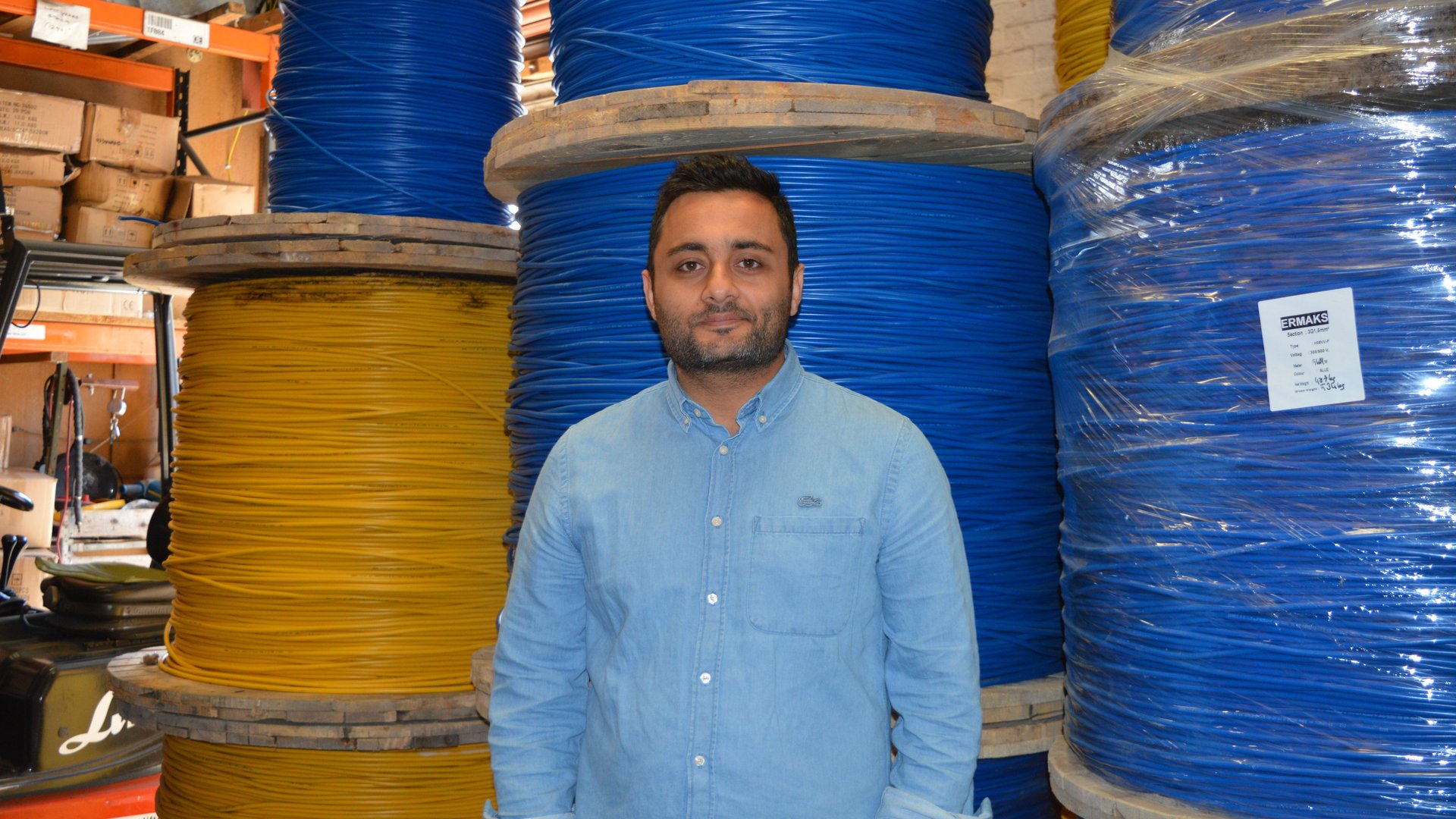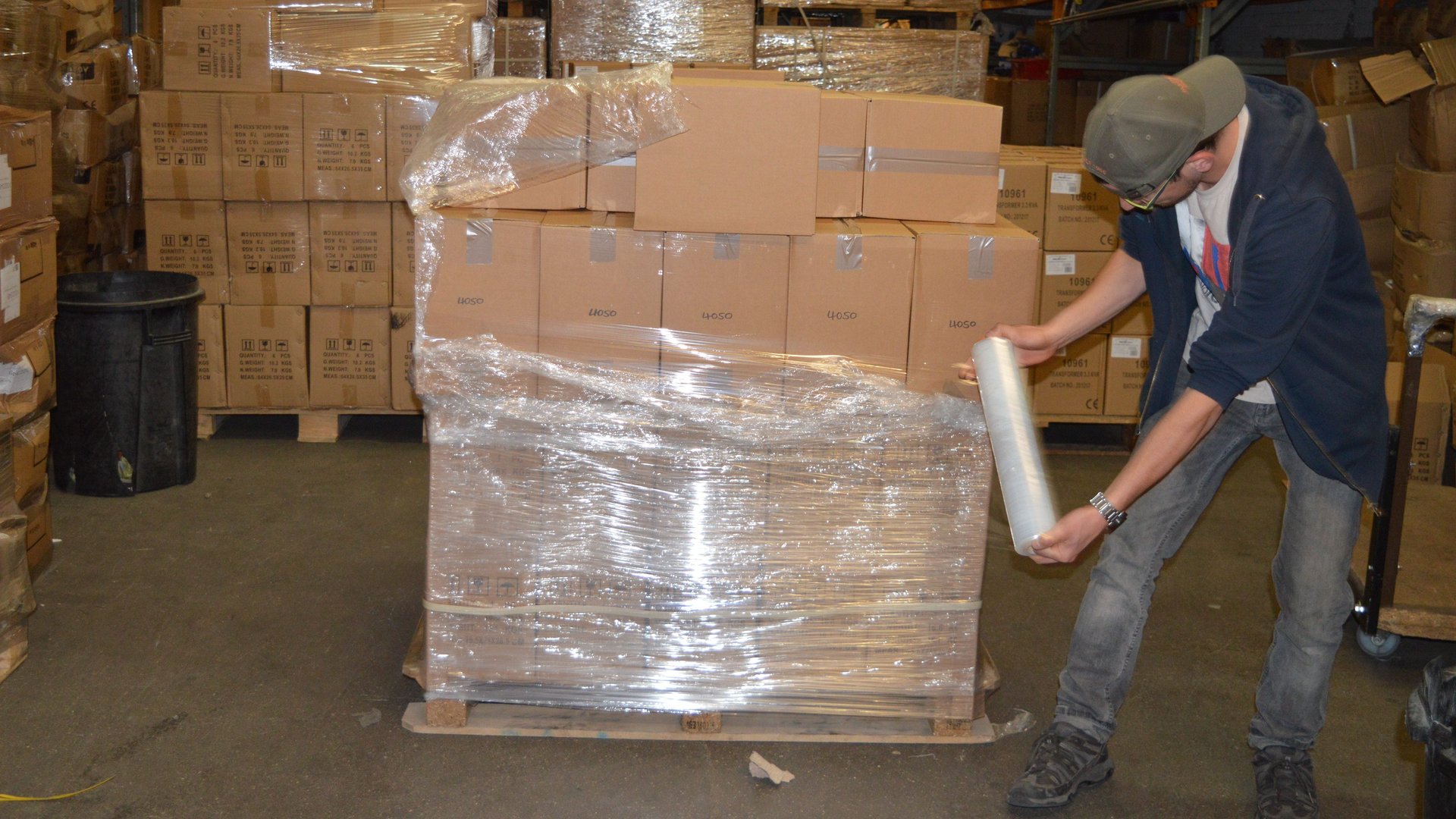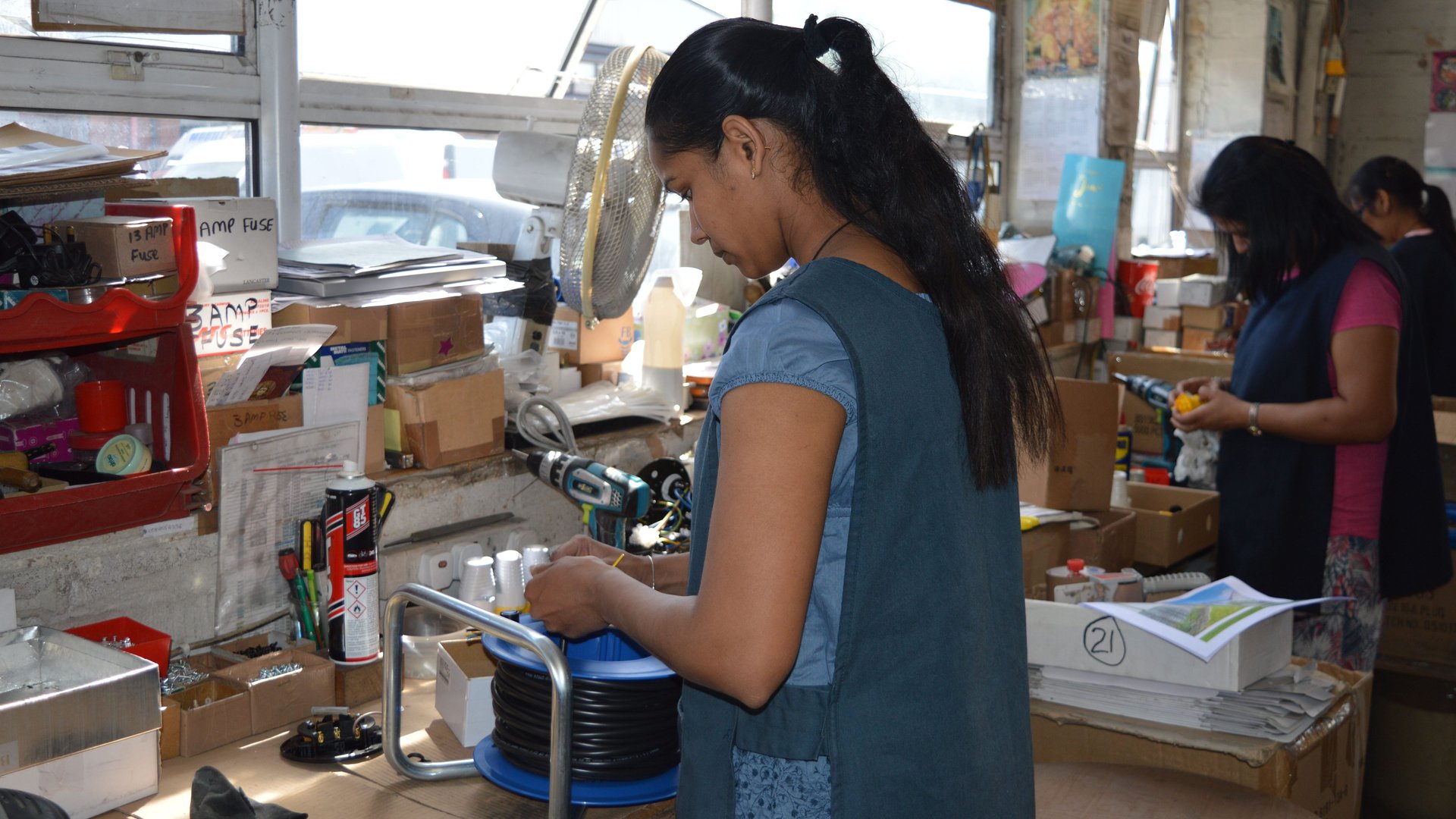The UK wants to kick out this Pakistani migrant. If he goes, 20 British jobs may go with him
Priti Varsani has worked in the same factory for nearly a quarter-decade. She joined Connexion Electrical, a small manufacturer and distributor based in North West London, in 1994. “I just thought it would be my first and last job,” she says, laughing.


Priti Varsani has worked in the same factory for nearly a quarter-decade. She joined Connexion Electrical, a small manufacturer and distributor based in North West London, in 1994. “I just thought it would be my first and last job,” she says, laughing.
But Varsani, 47, may soon have to find her second job. Just as the factory’s owner mulls retirement, the man next in line to run the company is at risk of deportation.
Connexion Electrical financial director Saleem Dadabhoy is one of 1,000 highly skilled migrants who have been denied settlement in the UK for issues as minor as mistakes in their tax returns. In Dadabhoy’s case, his settlement application was rejected in November 2017 after the government decided, on the basis of his taxes, that he did not meet the “good character” requirement to settle in the UK.
That devastating decision has meant that Dadabhoy hasn’t been allowed to work or access public services while he fights to stay in the country. It’s also separated him from his wife and daughter, who were forced to return to Pakistan. If a judge rules against Dadabhoy, he may have to leave the country and join them.
The repercussions of Dadabhoy’s possible deportation affect people beyond himself and his immediate family. In recent years, the UK has defended its crackdown on immigration as a strategy to protect citizens’ jobs from undocumented immigrants. But if Dadabhoy, who was born in Pakistan, is forced to leave the country, at least 20 British people may lose their jobs, too.
Unique position
Connexion Electrical, where Dadabhoy works, was founded by Andrew Leigh in 1975. Tucked away at the end of the road in a suburban town in the outskirts of London, the manufacturing company has eight full-time staff members and 12 contractors, along with a green parrot tucked in a cage in the corner. Most of the staff members are local residents. Connexion Electrical primarily manufactures and distributes power tools, such as extension leads, transformers and site lightening, to construction companies.
The company has had its ups and downs over the decades, hitting a significant bump after the 2008 financial crash. For years, its net worth “just bounced along the bottom,” Leigh says. When Dadabhoy joined in 2012 as the book-keeper, the company’s net worth was £2,288. Then Connexion’s fortunes took another turn. By 2017, its net worth had jumped to £502,628.
Leigh credits Dadabhoy for the company’s growth since 2012. He describes Dadabhoy as a skilled salesman who’s got a knack for sourcing new, innovative products. Within a few years of his hiring, Dadabhoy introduced a whole new set of products, streamlined operational processes, and brought in new suppliers. Now, Connexion Electrical trades with FT 100 companies.
Dadabhoy has long been seen as an obvious candidate to succeed Leigh. “In 2014, I made him a director of the company. Although he had the title of finance director, quite frankly he might just as well have the title of managing director,” Leigh says. “He’s really taken over so much of the responsibility, which I have had to bear on my shoulder.”
With Dadabhoy’s immigration status in question, Leigh has been forced to contemplate another vision of the company’s future. He and other workers say that Dadabhoy wears so many hats that it would be nearly impossible to replace him with just one person.
“It’s not that I can’t find someone else,” Leigh says. “I can find a salesman, a buyer, but will I find a bookkeeper, a buyer, a salesman, a financial director all in one?” He doubts it—and he says he can’t afford to bring on three people to replace Dadabhoy.

Leigh is 66 and says he is ready to “hang my guns up a little bit.” He says he’s in no position to get back into the driving seat, meeting clients and bringing in new business. And has no interest in working through his 70s, he adds. “I would like Saleem to take over. That is my plan.”
Dadabhoy is happy to succeed Leigh. But if that’s not possible, Leigh says, “I really cannot say whether I feel that I would have the ambition or the drive any longer at 66 to want to start that all over again,” Leigh says. “My gut feeling is it would be better to try to sell the company or just get out.”
A long battle
The UK Home Office claims Dadabhoy is a person of bad character—and that they can prove it.
He’s been rejected from the UK before. After Dadabhoy migrated to the UK 2010 to train as an accountant, he applied to change his student visa to the now-defunct Tier One general visa, which was given to highly skilled migrants.
He was rejected because the Home Office said he’d lied about his income on the application. He appealed that rejection and won. In 2013, he applied to extend his work visa, but the application was rejected. Again, Dadabhoy appealed and won.
He wrote off these two rejections as bureaucratic errors. But in 2017, after residing in the UK for seven years, he applied for settlement. He was once again rejected, this time under a controversial section in the UK’s immigration rules, known as paragraph 322(5). This paragraph denies people the right to remain in the UK because of their character, behavior, or if they are a threat to national security. In practice, this means Dadabhoy no longer had the right to work, rent or access services such as the National Health Service (NHS).
He no longer believes his rejections are a series of mistakes. He says the government is unfairly targeting lawfully residing migrants in a desperate bid to bring down net migration and score political points. “They want to get rid of any migrants that they can,” he adds. After his settlement was rejected, Dadabhoy launched a judicial review, where a judge reviews the lawfulness of the government’s decision. He goes to court on October 17, 2018.
Immigration activists say the issues faced by Dadabhoy and others like him can be traced back to the government’s “hostile environment” policy. When the Conservative Party came into power in 2010, politicians promised to cut net migration down to the “tens of thousands” by creating a hostile environment for anyone without proper documents: Theresa May, then home secretory, passed a law that made it impossible to open a new bank account, rent a house, be issued a driving license, or access the NHS without proving your legal residency. The bill forced landlords and employers to become immigration enforcers or risk being heavily fined.
The same government introduced widespread use of an anti-terror law to deport migrants who showed suspicious character or behavior, or threatened national security. The controversial paragraph 322(5) can have a devastating impact on a migrant’s life in the UK. And if a migrant is removed from the UK under paragraph 322(5), it would leave a black mark by their name—making it all the more difficult to obtain a visa elsewhere in the Western world. “No holidays, no business travel, and you basically suffer for a crime that you’ve never committed,” Dadabhoy says.
In May, the government said it would pause its use of paragraph 322(5) in this manner and launched a review of highly skilled migrants who were refused the right to permanently settle in the UK due to minor tax errors. But campaigners remain unconvinced that the review will lead to meaningful change.
The government’s case
The basis of Dadabhoy’s last rejection comes down to his taxes. When Dadabhoy applied to extend his leave in 2013, he declared one income. When he filled out his tax return, he declared another. The Home Office says this is proof that Dadabhoy was being dishonest—declaring a higher income when applying for a visa, and a lower one when doing his tax returns.
Dadabhoy says the difference is down to three reasons—none of which involve an attempt to mislead the government. First, he spent a substantial amount of money challenging the Home Office’s rejections. His lawyer told him that the cost of his appeal was a legitimate business expense, and accordingly set it off against his turnover when calculating the profit that he reported for tax purposes. He says this business expense meant his net income dipped from 2013 to 2014, although his gross income did not. Second, Dadabhoy accuses the Home Office of comparing an accounting period to a tax period. And finally, the Home Office had asked for gross incomes, but compared them to net incomes.
After some back and forth, the Home Office finally admitted that they had confused gross and net figures, as well as the tax periods. But the Home Office still believes Dadabhoy should be deported, arguing his legal fees are not legitimate business expenses. This was a new argument for refusal, “which had not been raised in the multiple considerations of the case so far,” Mark Symes, Dadabhoy lawyer, notes in a recent letter sent to the Home Office. “One worries that it is the product of the thinking of clever government lawyers rather than a genuine part of UKVI’s [UK Visa and Immigration] thought processes at all.”
For Dadabhoy, it’s further proof that he’s victim of a blind zeal to reduce immigration at all costs.
A spokesperson for the Home Office tells Quartz that they are unable to comment on the case because it is subject to ongoing legal proceedings. But they note the following in a statement: “Either legal fees are a business expense—in which case they must be deducted when calculating profit—or they were a personal expense—in which case they should not be recorded as a business expense when reporting to HMRC [department responsible for collecting taxes].”
Dadabhoy says even if his businesses expenses are not legitimate, they amount to a few thousand pounds. He pays far more than that in his taxes annually.
A felt absence
While Dadabhoy visits Connexion Electrical to advise as a trustee, he’s no longer allowed to interact with clients, bring in new business, or travel for the job.
His absence has been felt across the factory. Anthony Falvey, 31-year-old warehouse manager, says that carrying on without Dadabhoy is an impossible task for the company. “That’s an awful load of workload to delegate out amongst the remaining team.” Falvey points to mock-up of delivery notes. The company uses an excel spreadsheet system that Dadabhoy developed, but whenever something goes wrong, others struggle to fix it without him. “He’s the one who set it all up,” he explains.

The fact that the company could close if Dadabhoy can’t stay in the UK looms over all of the workers. “I enjoy coming to work. Always happy, chatty, laughing. We feel this is our home. You know?” Varsani says. “If he goes, I don’t think we’ll be able to work for long.” She wonders at this age whether she’d be able to get a factory job as senior as hers or one that pays as well. Another colleague is 53, and doubts she’ll be able to find another job in a factory.
Every year, Dadabhoy and Leigh go and source new products from China that could help their business grow. Now that Dadabhoy isn’t allowed to travel, they haven’t been able to bring in new products and technologies, Dadabhoy says. As a result, Dadabhoy estimates the company has lost between £100,000 to £150,000 worth of sales.
Leigh also speaks of a possible contract in the Middle East worth in total $10 million. To secure the deal, Dadabhoy would need to travel. Dadabhoy had already done much of the legwork for the contract and, frankly, is a lot better at dealing with clients, Leigh says. But Dadabhoy can’t go, and everything remains frozen until his immigration status has been resolved. If it’s held up for a lot longer, they could lose the deal entirely, Leigh says.
Maya Leigh, who has done the invoicing for the company since the 1970s, has not only watched Dadabhoy transform the company, but also seen a huge weight lifted of both her and her husband’s shoulders. “I don’t know how we’d function without him,” she says. “I know we wouldn’t be able to.”
Many clients have also come to Dadabhoy’s defense. A half-dozen clients sent out statements of support to the Home Office, emphasizing Dadabhoy’s importance in Connexion Electrical and their working relationship. In one letter, one client bluntly notes that if Dadabhoy were to leave the company, “I will have to take my business elsewhere,” adding, “I will not have the confidence in the company that I have currently.” That’s not the only client contemplating taking their business elsewhere if Dadabhoy is forced to leave. The loss of revenue from those seven clients would amount to £600,000.
A campaigner
Dadabhoy says his fight with the Home Office is not just about him. He takes issue with the government’s use of paragraph 322(5), which has left many migrants destitute.
Dadabhoy acknowledges he’s in a better position than most. The loss of his job hasn’t forced him to pile on debt because he hails from one of the wealthiest families in Pakistan. The job at Connextion Electrical was an opportunity to break into the manufacturing business, he says. He saw huge growth opportunity there, and wanted to be able to strike out on his own in the UK.
But though he’s financially stable, the Home Office refusal has broken his family apart. His wife and his daughter had to return to Pakistan in November 2017. The last time he saw his family—at the terminal at Heathrow airport—is an image that replays in his mind.
He now watches his daughter grow up through Skype. As for his wife, he says she never signed up to be a single mom and has found the separation distressing. “This is not what the UK is all about. This is not what British values are,” Dadabhoy says.

It’s a frustrating position for Leigh. As his company is profitable and there’s lots of potential for growth, he shouldn’t have to contemplate shutting it down. It’s surprising that the Conservative Party, the political party long known to be in favor of business, is largely behind the predicament he’s in. Leigh says he supported the Conservative Party “all my voting life,” but the “shameful” treatment of Dadabhoy has made him pause.
His wife Maya, another Conservative voter, is also appalled. She says: “Although I can never vote Labour, I have to be honest, I don’t think I would go to the polls next time.”